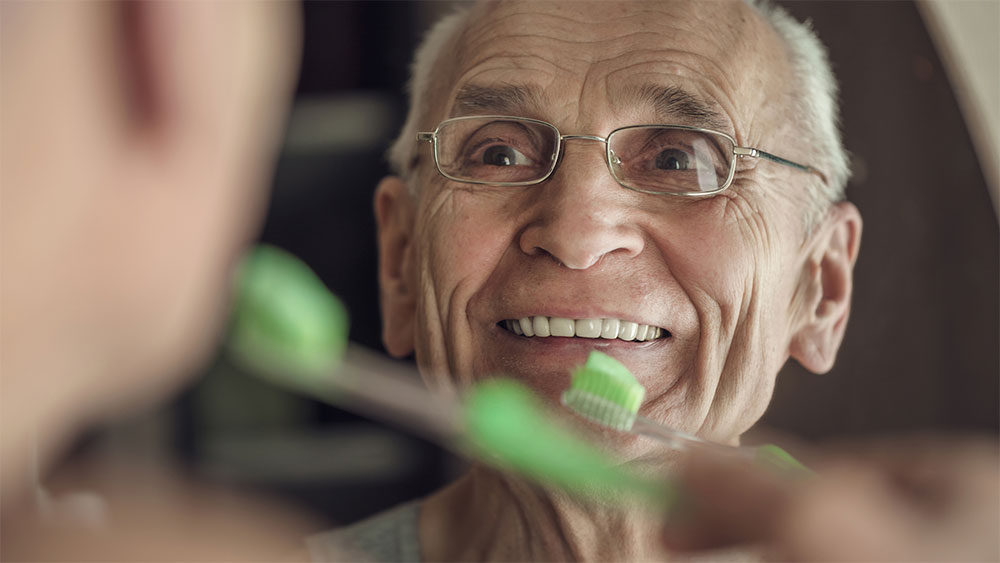
Dental hygiene is important for seniors with dementia and our providers of dementia home care in Littleton, CO and the surrounding areas can help.
It’s one of the first things we do each and every morning, and one of the last things we do every night, usually on autopilot without giving it a second thought. Yet it actually is a complex process comprised of numerous steps, making this seemingly simple task quite a challenge for someone with dementia.
Proper dental hygiene is crucial for everyone, regardless of age, and not only to help keep our gums and teeth healthy. Poor dental hygiene may bring about serious health conditions, such as cardiovascular disease, stroke, osteoporosis, respiratory disease, and more. It may also impact being able to talk and eat.
Dental Hygiene in Dementia
So how are you able to ensure a senior loved one with dementia maintains good oral hygiene? These tips from Abby Senior Care, providers of dementia home care in Littleton, CO and the surrounding areas, can help:
- Modeling is a great approach to help a loved one with dementia through a multistep process like brushing the teeth. Encourage the person to accomplish each step of the process on their own whenever possible: placing a small amount of toothpaste on the brush (baking soda toothpaste is preferred over fluoride, just in case the person swallows it), lifting the brush to the mouth, and moving the brush side to side and up and down over all surfaces of the teeth.
- For someone who needs help, provide a toothbrush with toothpaste already applied, stand behind the senior, and place your hand over the senior’s, starting the motion of brushing for them.
- If grasping the brush is difficult, there are longer-handled toothbrushes available, or, cut holes in a tennis ball and push the brush through, giving the senior something larger to hold onto. A battery-powered toothbrush can also be a good option to try.
- Flossing is also an important part of dental hygiene. For independent flossing, try floss holders or other tools designed to make it easier and more efficient. If you are flossing the senior’s teeth, again, standing behind the individual might be easiest.
- If the senior has dentures, be sure to remove, brush, and rinse them each day. While the dentures are removed, a soft-bristled toothbrush should be used to gently clean the older adult’s gums and roof of the mouth.
Don’t Forget the Dentist
Whenever possible, find a dentist who specialize in dementia dental treatments. A senior with dementia should continue to receive routine dental exams, which include checking of dentures to make sure of an appropriate fit, as well as to rule out any issues with the teeth or gums. A senior with dementia who’s not able to communicate dental discomfort or pain may exhibit signs such as:
- Touching the jaw or cheek, or rubbing the affected region
- Rolling or nodding the head
- Resisting any hygiene near the area, including washing the face or shaving
- Sleeping problems
- Aggression, moaning, or yelling
- Resistance to putting dentures in
If any of these symptoms are noted, schedule an appointment with the dentist as soon as possible.
For even more tips, and for compassionate, skilled help with oral care for a loved one with dementia, contact Abby Senior Care, the experts in dementia home care in Littleton, CO and nearby areas, at 303-699-8840. For a full list of all of the communities where we offer our award-winning home care services, please visit our Service Area page.
